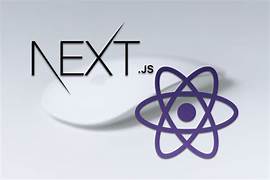
How to Build a Movie Internet Information Database with Headless, React, and Next.js
Web development’s evolving realm has seen an exciting convergence of a headless CMS with React and Next.js. This powerful trio provides an innovative avenue for creating dynamic web platforms, such as a movie internet information database. Let’s delve deeper.
What is a headless CMS?
Stripping away the front end, a headless CMS focuses on providing backend content management. This approach offers developers the liberty to integrate with any front-end technology, ensuring flexibility and adaptability.
Benefits of using a headless CMS for a movie internet information database:
Flexibility: Seamless integration across a variety of platforms and devices.
Scalability: Designed to handle extensive traffic without traditional CMS bottlenecks.
Developer-oriented: Empowering developers with the freedom to choose their preferred tools and frameworks.
Why use React and Next.js?
React, renowned for its component-centric design, is perfect for constructing dynamic UIs. Meanwhile, Next.js combines the best of static site generation and server-side rendering, optimizing web applications for speed and SEO.
Building the Movie Internet Information Database:
Choosing a headless CMS: With options like Strapi, Contentful, or Sanity, pick a CMS that aligns with your project vision.
Creating the React front end: Leverage React’s component-based design to craft interactive UI elements.
Using Next.js: Take advantage of Next.js for the perfect mix of static site generation and server-rendering.
Connecting React to the headless CMS: Utilize GraphQL or RESTful APIs to funnel movie data from the CMS to the user interface.
Implementing search functionality: Integrate robust search engines like ElasticSearch, MeiliSearch, or Algolia for a refined search experience.
Adding more features: Incorporate functionalities like user registration, authentication, and reviews, utilizing tools such as Passport.js or NextAuth.
Case Study: YouSay Telugu Film Industry Database (TFIDB)
How YouSay TFIDB platform was constructed:
YouSay TFIDB platform stands as a testament to the potency of cutting-edge web tools. Built serverless, it utilizes various AWS services: AWS Lambda for backend operations, AppSync for seamless communication between the frontend and backend, and Cognito ensuring user security. Data is securely stored in S3, with content delivered promptly via CDN, ensuring performance optimization. Amplify JS further simplifies the process by integrating AWS services into the frontend. MeiliSearch powers the platform’s dynamic search functionality.
Key Features of YouSay TFIDB platform
Extensive Movie Database: Houses a comprehensive collection of Telugu movies spanning from the year 1930, ensuring a deep dive into cinematic history. It has both telugu and english version (YouSay Telugu Film Industry Database)
Rich Actor and Crew Directory: Boasts an extensive database of actors, directors, producers, and crew members, offering a holistic view of the Telugu film industry.
Editorial Lists: Curated lists that provide insights, trivia, and more in-depth information about movies, actors, and industry trends, enhancing user engagement.
Dynamic Search: Empowered by MeiliSearch, the platform offers users an efficient way to explore movies, actors, and directors.
User Profiles & Community Engagement: Enables users to curate their cinematic journey, with options to earmark favorites and form watchlists.
The synergy of headless applications with React, and Next.js, backed by AWS’s formidable array of services, carves a path for future-forward, scalable, and interactive web applications. The YouSay TFIDB platform underscores the immense potential of this technological blend. For upcoming developers and tech enthusiasts, this combination is your arsenal for crafting the next digital marvel.








Paul
/
That is pretty cool. I love next JS and recently got a chance to work on this project. A good starting point for anyone looking to explore Next JS with a headless cms.
October 5, 2023